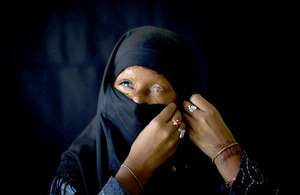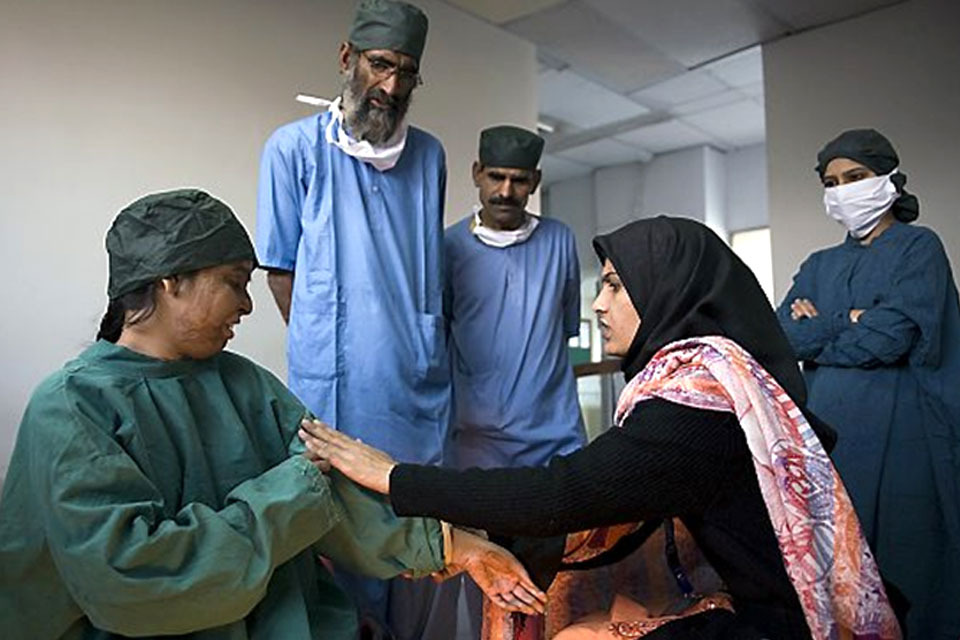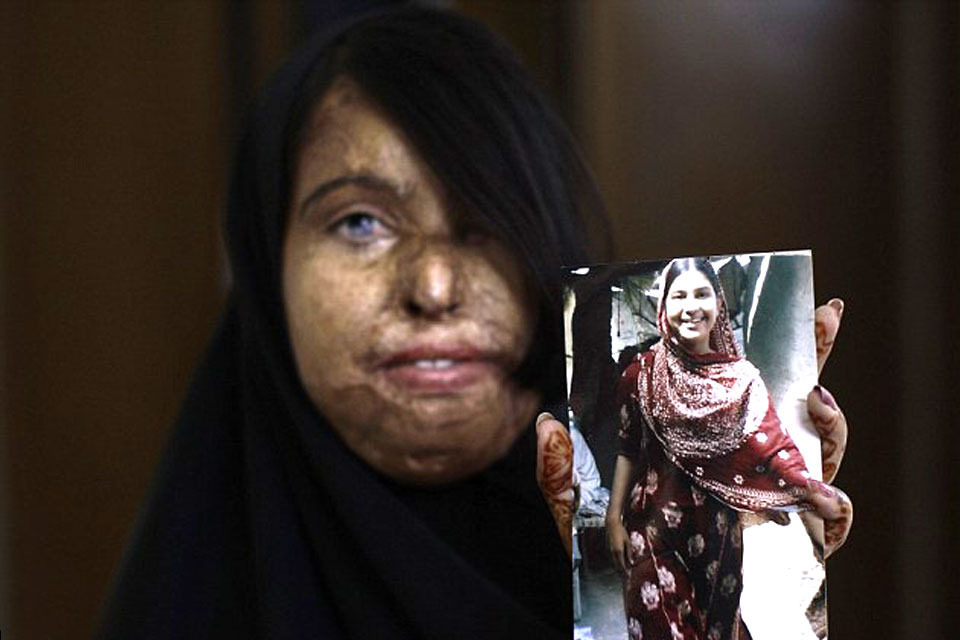Tackling violence against women in Pakistan
UK support to the Acid Survivors Foundation is helping survivors of acid attacks get medical help and legal advice.

Naila was left severely disfigured by an acid attack when she was 14 years old. Picture: Acid Survivors Foundation
Twenty-three-year-old Naila has endured many years of medical care and legal battles. Following a brutal acid attack, she was left with severe burns on her face and neck, lost an ear and vision from 1 eye. Naila’s parents fought devotedly to take her case to the Supreme Court of Pakistan, a first in the country. Their journey was made easier through the help they received from the Acid Survivors Foundation (ASF) which was supported by the UK.
Thanks to her parents’ commitment and the dedicated efforts of ASF, the Supreme Court sentenced Naila’s attacker to 12 years imprisonment and a fine of Rs 1.2 million. After her case, the Chief Justice Iftikhar Chaudhry recommended Pakistani parliamentarians legislate on acid and burn violence, using the Bangladeshi law as a model.

Naila receives medical care for her burn wounds. British funding to the ASF provides medical care for acid attack survivors like Naila. Picture: Acid Survivors Foundation
Violence against girls and women
Acid attacks cause immediate disfigurement, long-lasting medical complications, social ostracism and psychological damage for victims and their families. In Pakistan it is estimated that up to 400 women experience acid attacks every year, most committed by their husbands or in-laws.
The Acid Survivors Foundation (ASF) Pakistan is a non-profit organization founded in 2006 with the support of the Acid Survivors Trust International, a UK-based organisation. The organisation aims to support survivors of acid attacks in Pakistan by helping them get medical help and legal support. British aid from the Department for International Development has supported ASF’s efforts to eradicate acid violence in Pakistan and promote the rights of acid and burn survivors.

Naila shows a picture of herself before the acid attack. Picture: Acid Survivors Foundation
Naila’s story
Fourteen-year-old Naila was attacked by her school teacher when she rejected his sexual advances at a school celebration. She was left severely disfigured by the attack. She had to undergo several eye surgeries and hair transplants, along with many other procedures.
ASF helped Naila recover from the attack and supported her through a diploma in tailoring. With the sewing machine ASF gave her she can now earn some money to support herself and further studies to become a lawyer, which has become her ambition.
Speaking up for others
Naila has become an activist for women’s rights and has encouraged many women to raise their voices and speak out against acid violence. She played an active role in getting Pakistan’s Senate to criminalise acid violence. This was eventually done in December 2011 through an amendment to the National Penal Code.
Since June 2012, Naila has been lobbying the National Assembly to pass the Comprehensive Acid and Burn Crime Bill.
Facts and stats
Acid attacks are most common in South Asia, where acid is cheap and easily available.
80% of known acid attack victims are female and almost 70% are under 18 years of age.
The UK directly funded ASF from 2008 to 2012 - through this funding ASF was able to provide medical care for survivors, lobby for legislation on acid crime control which was eventually passed and train police, lawyers and medical staff to implement the law.
DFID continues to support ASF indirectly through funding for the Acid Survivors Trust International (ASTI). ASTI works to prevent acid attacks and to help survivors of acid and burns violence in Pakistan and Nepal.
Ending all forms of violence against girls and women is a priority for the UK government. DFID is investing up to £25 million over 5 years in a new Violence Against Women and Girls Research and Innovation Fund. This pioneering fund will drive innovation, generate new evidence to understand what works in tackling the root causes of violence against women and girls and support new violence prevention programmes.